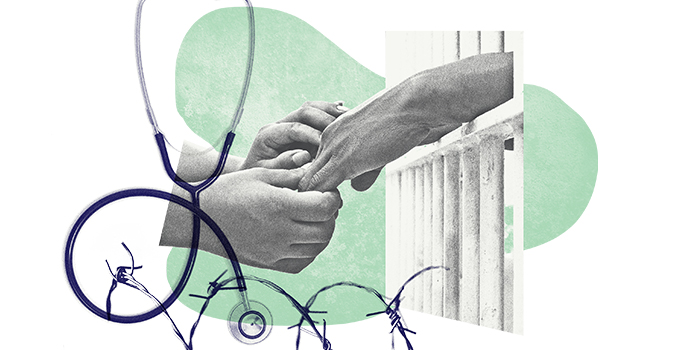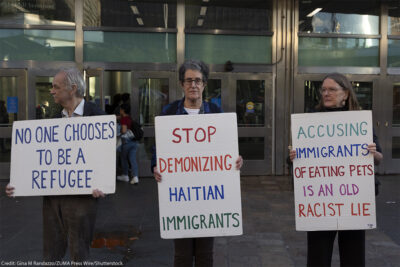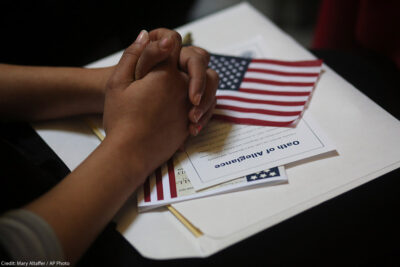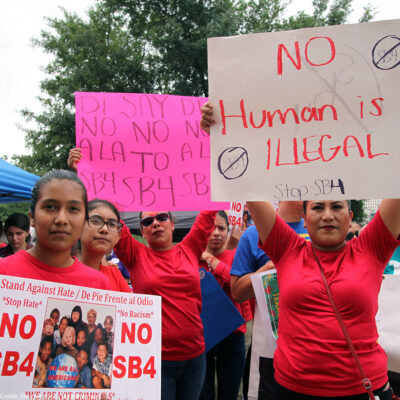Human Rights and Immigration
The ACLU works in courts, legislatures, and communities to defend and preserve the individual rights and liberties that the Constitution and the laws of the United States guarantee everyone in this country.

The Latest
Explore More
What's at Stake
Numerous international human rights documents firmly estabÂlish the principle that no human being can be “illegal” or outside the protection of the law. Yet despite the clearly established principle that discrimination and abuse based on immigration status are violations of human rights, U.S. government policies continue to sanction human rights violations against migrants and imÂmigrants.
Federal immigration enforcement policies, including border enforcement measures by Customs and Border Protection (CBP), have led to an increase in racial profiling, border killings, and denial of due process rights. Immigrant workers are often abused, exploited, and have become scapegoats and victims of racism and stereotyping.
Every year, the U.S. government detains hundreds of thousands of individuals in administrative immigration detention. Some of these individuals—who include asylum seekers, longtime residents, children, and people with disabilities—are sometimes detained for months or years while their immigration cases and any subsequent appeals proceed. Moreover, many detainees are subject to “mandatory detention” and never receive the most basic element of due process: a bond hearing to determine if their detention during the pendency of their cases is even necessary. As a result, many detainees are subjected to prolonged detention even though they have substantial challenges to removal and pose no significant danger to public safety or flight risk.
Despite years of advocacy and some additional oversight, U.S. immigration detention facilities continue to be plagued by inhumane conditions, including overuse of solitary confinement and sexual assault. In short-term custody cells and facilities run by CBP along the U.S. border, adults and unaccompanied children have been subjected to abuse, harassment, and mistreatment.
Numerous international human rights documents firmly estabÂlish the principle that no human being can be “illegal” or outside the protection of the law. Yet despite the clearly established principle that discrimination and abuse based on immigration status are violations of human rights, U.S. government policies continue to sanction human rights violations against migrants and imÂmigrants.
Federal immigration enforcement policies, including border enforcement measures by Customs and Border Protection (CBP), have led to an increase in racial profiling, border killings, and denial of due process rights. Immigrant workers are often abused, exploited, and have become scapegoats and victims of racism and stereotyping.
Every year, the U.S. government detains hundreds of thousands of individuals in administrative immigration detention. Some of these individuals—who include asylum seekers, longtime residents, children, and people with disabilities—are sometimes detained for months or years while their immigration cases and any subsequent appeals proceed. Moreover, many detainees are subject to “mandatory detention” and never receive the most basic element of due process: a bond hearing to determine if their detention during the pendency of their cases is even necessary. As a result, many detainees are subjected to prolonged detention even though they have substantial challenges to removal and pose no significant danger to public safety or flight risk.
Despite years of advocacy and some additional oversight, U.S. immigration detention facilities continue to be plagued by inhumane conditions, including overuse of solitary confinement and sexual assault. In short-term custody cells and facilities run by CBP along the U.S. border, adults and unaccompanied children have been subjected to abuse, harassment, and mistreatment.



